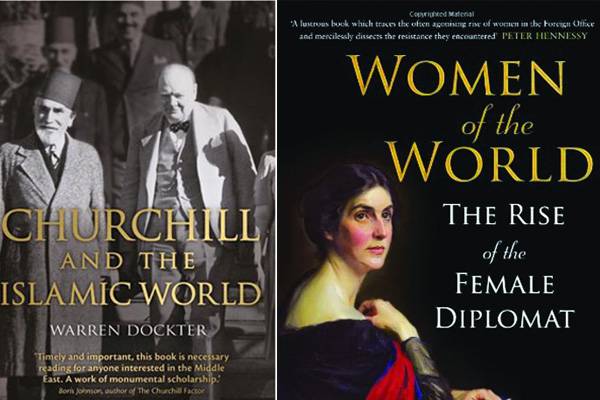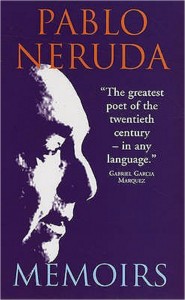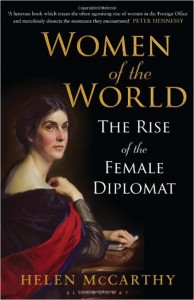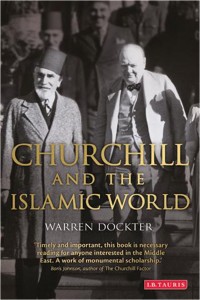
VINTAGE FIND!

Memoirs
Pablo Neruda
Souvenir Press [paperback], 2004
PRs 1,160
Not only was Pablo Neruda one of the twentieth century’s greatest poets, but his life was also an integral part of the history of the century. Neruda was born the son of a railway worker and Memoirs opens with a lyrical evocation of his childhood in Chile, in what was still a frontier wilderness. Neruda describes his bohemian youth in Santiago and his career as Chilean consul in Burma and Ceylon before the agony of his life during the Spanish Civil War. After the murder of his friend, Garcia Lorca, Neruda became a communist and a poet “for the people”. On his return to Chile, he became a senator before being forced into exile: he escaped from Chile on horseback over the Andes in 1949. Written in Neruda’s vivid and unmistakable style, Memoirs depicts an extraordinary literary and political world peopled with the artists, poets and leaders who were his friends: Lorca and Eluard, Picasso and Rivera, Gandhi, Mao Tse-Tung, Salvador Allende and Che Guevara.
Pablo Neruda, the pen name of Neftali Ricardo Reyes Basoalto, was born in 1904 and became a central figure in every poetry movement of the twentieth century. Neruda had a controversial political career: he served as a diplomat for Chile in many countries, including Spain during the Spanish Civil War, and rose to be the Chilean Ambassador to France. Asked to stand in Chile’s Presidential election in 1969, Neruda stood down in favour of his close friend, Salvador Allende. He was awarded the Nobel Prize for Literature in 1971 and died in 1973.
What people are saying: “I laid my hands on the autobiography of Pablo Neruda [Memoirs]. I found it fascinating. I know his poetry, but I’d never read about his life, and afterward I could understand how the poems came out of this man” (Wole Soyinka).
EDITOR’S PICK!

Women of the World: The Rise of the Female Diplomat
Helen McCarthy
Bloomsbury [hardback], 2014
PRs 1,195
Throughout the twentieth century and long before, hundreds of determined British women defied the social conventions of their day in order to seek adventure and influence on the world stage. Some became travellers and explorers; others business owners or buyers; others still devoted their lives to worthy international causes, from anti-slavery and women’s suffrage to the League of Nations and world peace. Yet until 1946, no British woman could officially represent her nation abroad. It was only after decades of campaigning and the heroic labours performed by women during the Second World War that diplomatic careers were finally opened to both sexes.
Women of the World tells this story of personal and professional struggle against the dramatic backdrop of war, super-power rivalry and global transformation over the last century and a half. From London to Washington, Geneva to Tehran, and in the deserts of Arabia, the souks of Damascus and the hospitals of Sarajevo, resolute women undaunted by intransigent officials and hostile foreign governments proved their worth.
Moved by a longing to escape domestic redundancy, to follow in the footsteps of fathers or brothers, to build a more peaceful world, to discover cultures other than their own or simply to serve the nation that denied them full equality, these women were extraordinary individuals fighting prejudice in high places. Drawing on letters, memoirs, personal interviews and government records, these heroines caught up in the larger endeavours of the world’s greatest empire are brought vividly to life.
What people are saying: “An account less about the rise of female diplomats than the often jaw-dropping machinations of the British establishment and the Foreign Office to keep women out of the ultimate boys’ club” (The Times).
Churchill and the Islamic World: Orientalism, Empire and Diplomacy in the Middle East

Warren Dockter
I B Tauris [paperback], 2015
PRs 1,995
Winston Churchill began his career as a junior officer and war correspondent in the North West borderlands of British India, and this experience was the beginning of his long relationship with the Islamic world. Overturning the widely accepted consensus that Churchill was indifferent to – and even contemptuous of – matters concerning the Middle East, this book unravels his nuanced understanding of the edges of the British Empire.
Warren Dockter analyses the then future Prime Minister’s experiences of the East, including his work as Colonial Under-Secretary in the early 1900s, his relations with the Ottomans and conduct during the Dardanelles Campaign of 1915/16, his arguments with David Lloyd- George over Turkey, and his pragmatic support of Syria and Saudi Arabia during World War II. Challenging the popular depiction of Churchill as an ignorant imperialist when it came to the Middle East, Dockter suggests that his policymaking was often more informed and relatively progressive when compared to the Orientalist prejudices of many of his contemporaries.
An enlightening and original account of an important and neglected aspect of Churchill’s strategic and political world-view, Churchill and the Islamic World forces us to rethink what we know about the origins of the modern Middle East. This is essential reading for Churchill scholars and general readers alike.
What people are saying: “A panoramic and insightful overview of Churchill’s lifelong relationship with the Muslim world, which reveals it to be both more complex and more interesting than is generally portrayed” (Allen Packwood, Director of the Churchill Archives Centre, University of Cambridge).

